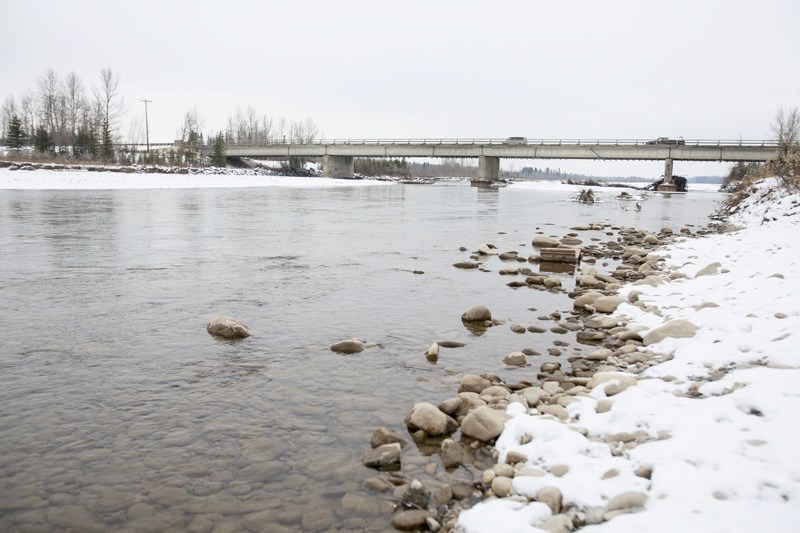The Integrated Watershed Management Plan (IWMP) for the Red Deer River Watershed is well underway, officials said.Gerard Aldridge, executive director for the Red Deer River Watershed Alliance (RDRWA), a non-profit registered charity, explained that the Integrated Watershed Management Plan is being developed so that area residents can better understand the watershed.The alliance held its fall meeting at Olds College on Oct. 25.The watershed study, said Aldridge, which is scheduled for completion in March 2014, is examining the health of the watershed and determining how to best maintain and improve it, through a series of studies funded and organized by the RDRWA.Once the studies have all been completed, they will be used to create the IWMP.“Essentially,” said Aldridge, “the message for the residents of the watershed is that watershed management benefits all. It's everyone's business. It's for the sake of the health of the watershed, and whether it's the biological, social, or economic health, it all needs to be considered.”He said that everybody has a role to play in providing their thoughts and opinions, because the IWMP, once completed, will allow the RDRWA to put forth recommendations as to how to treat the problems and issues affecting one of the area's most precious resources.“It is recognizing where we're at in terms of a number of parameters, and crafting a go-forward plan, recognizing that we're a non-regulatory body--we're only an advisory. We're not a governmental body that sets policy and regulation and that sort of thing.“What we're structuring here is a plan that would be there as being our best recommendations for voluntary implementation.”The IWMP kicked off in 2010, he said, and it's a long-term process of studying the watershed, focusing on four main areas of study: surface water quality, land use (riparian and wetlands), water quantity and groundwater, and terrestrial and aquatic biodiversity.The surface water quality study, Aldridge noted, was completed in April this year, with the land use study scheduled for completion this December.RDRWA will be seeking input from the public early in November, before the land use component is completed, he added.“And these are technical reports that are eventually going to inform on the writing of that final report that will be complete in March of 2014.”He said the studies are, and will be once completed, posted on the organization's website, and the most recent will be up by mid-November or early December.Once online, the RDRWA will then announce a series of workshops where the public will be able to offer opinions and advice.“There will also be an online response which, he said, has seen great success in the past.The watershed management plan, he explained, will be referred to during the development of the final plan. It will draw on those reports, he added.“It'll involve a series of recommendations or actions,” said Aldridge. “Some would refer to them as beneficial management practices that we may end up developing as a result of the work.”Another job of the RDRWA, he added, which was requested by many people who are involved in it, is to educate the public as to the importance of taking care of our watershed.“We've developed certain educational packages that can be taken into schools and really match curriculum development--particularly Grade 5s and Grade 8s.“But we also tailor to other grades as well. So we've been doing a lot of outreach work and we're looking at trying to increase that in the year ahead as well.”He said that the RDRWA is a non-profit society and also a registered charity that is governed by a board of directors, which is elected at the annual meeting of the RDRWA society.“It's gratifying to see that our work is paying off,” Aldridge said, “and that over time, we can better inform everyone about the watershed's health and how we all can work together to make improvements to it.”For those interested in learning more, the RDRWA website is (www.RDRWA.ca).



